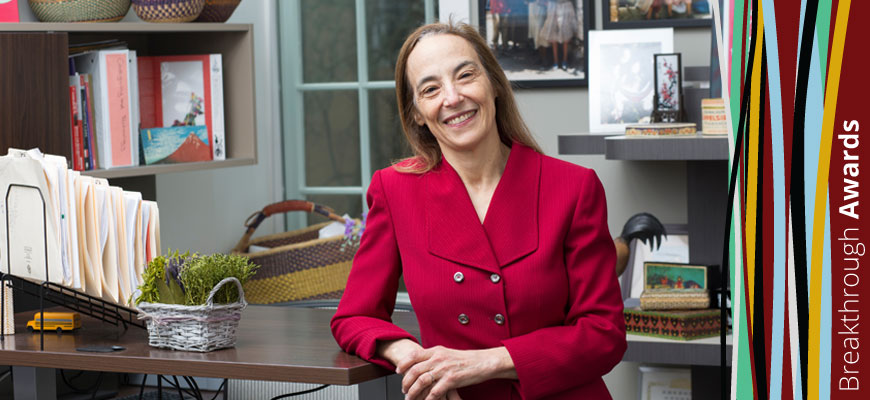
Interdisciplinary approach
Social work researcher Sue Levkoff seeks to reduce health disparities
Posted on: March 3, 2017; Updated on: March 3, 2017
By Page Ivey, pivey@mailbox.sc.edu, 803-777-3085
When Sue Levkoff came home to South Carolina seven years ago, she was tasked with helping establish interdisciplinary research that would help close health disparities in the Palmetto State.
Her previous 30 years as a social sciences researcher at Harvard Medical School had taught her that all work is interdisciplinary.
“Being a nonphysician in the medical school there, it was natural for me to work with interdisciplinary teams,” the Charleston native says. “What is especially rewarding for me here at USC is to be in the position where I can give back and contribution to the next generation of scholars.”
“Dr. Levkoff has been stunning in her generosity as a mentor, and in the impact she has had on junior faculty across UofSC,” says Tayloe Harding, interim dean of the College of Social Work where Levkoff serves as a professor and the SmartState Endowed Chair for SmartHOME. “Dr. Levkoff’s mentorship goes above and beyond the typical support provided by senior faculty, particularly when working with junior faculty on grant development.”
Levkoff and her husband have a company housed in the USC-Columbia Technology Incubator that helps researchers get funding for projects that assist older residents to remain independent .
“We are trying to develop an infrastructure for gerontechnology — the study of aging and the technology that allows people to age in place,” she says. “I was tasked to develop this infrastructure for research that crosses disciplines.”
Researchers that have been helped under the SmartHOME umbrella come from a variety of fields, including nursing, engineering, computer science and pharmacy.
Some of her group’s current projects include better monitoring of patients with congestive heart failure and better medication adherence for older African-American HIV patients.
Much of Levkoff’s work focuses on health disparities, particularly between black and white populations in South Carolina.
“Perhaps my most important contribution to the community has been my receipt in 2015 of a five-year grant to establish the S.C.-Advancing Diversity in Aging Research undergraduate program,” she says.
That program partners with five historically black colleges and universities in S.C. to increase the number of qualified underrepresented racial and ethnic minority students who pursue scientific graduate studies in programs focusing on STEM and aging.
That project includes 30 other faculty members on campus who have agreed to work as mentors for the students over two summers. The students work in labs of USC faculty in STEM fields as well as assistance in applying to graduate or professional schools. Five students participated in the program during the first summer, and another six students will join the second cohort in summer 2017.
“We also introduced an innovative co-mentoring program to provide support and mentoring to HBCU faculty in advancing their research careers,” Levkoff says.
Share this Story! Let friends in your social network know what you are reading about